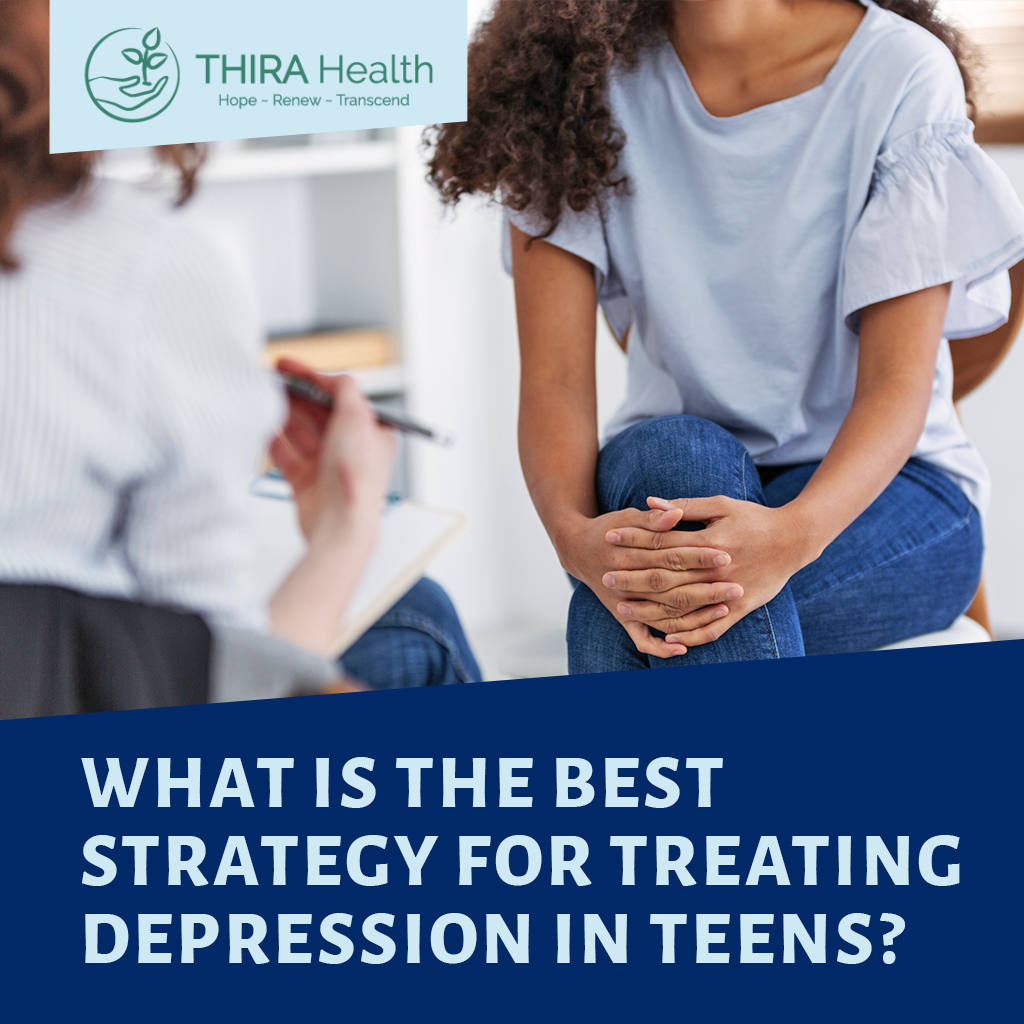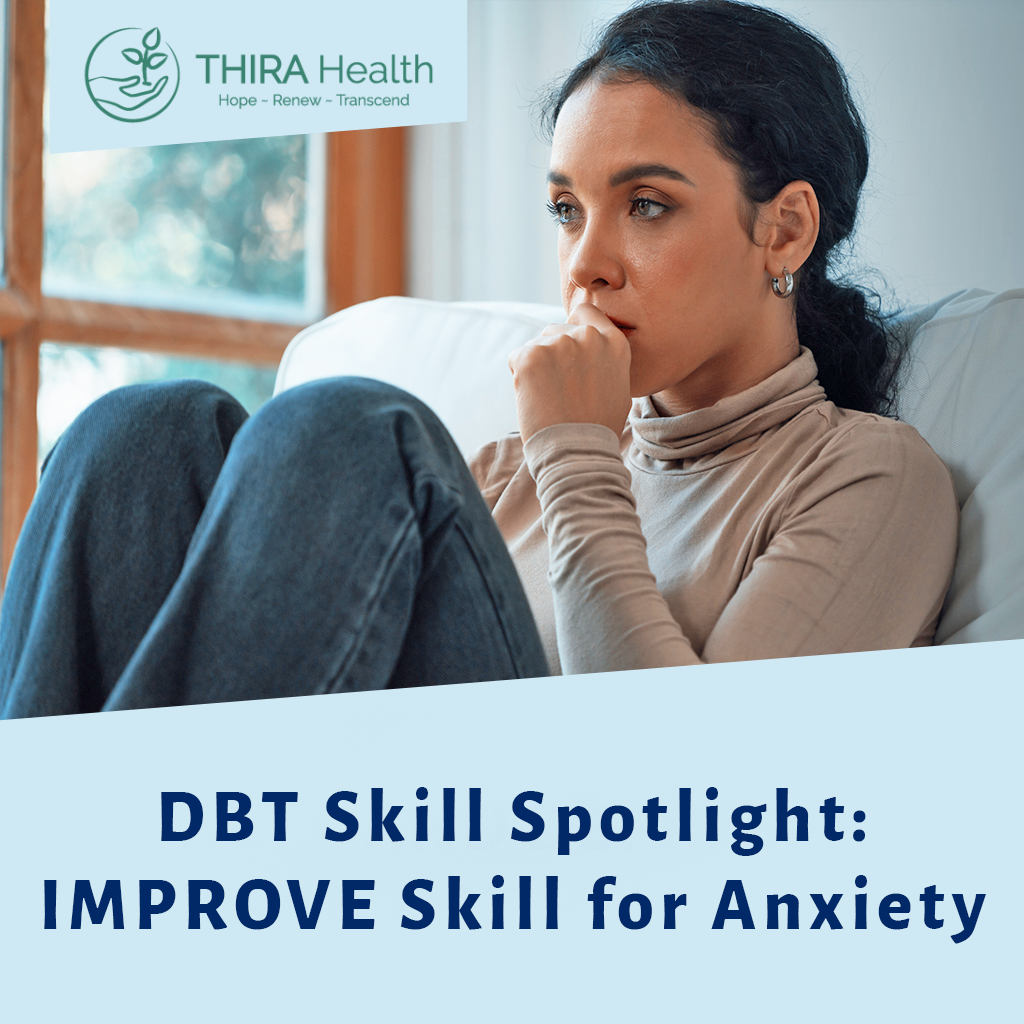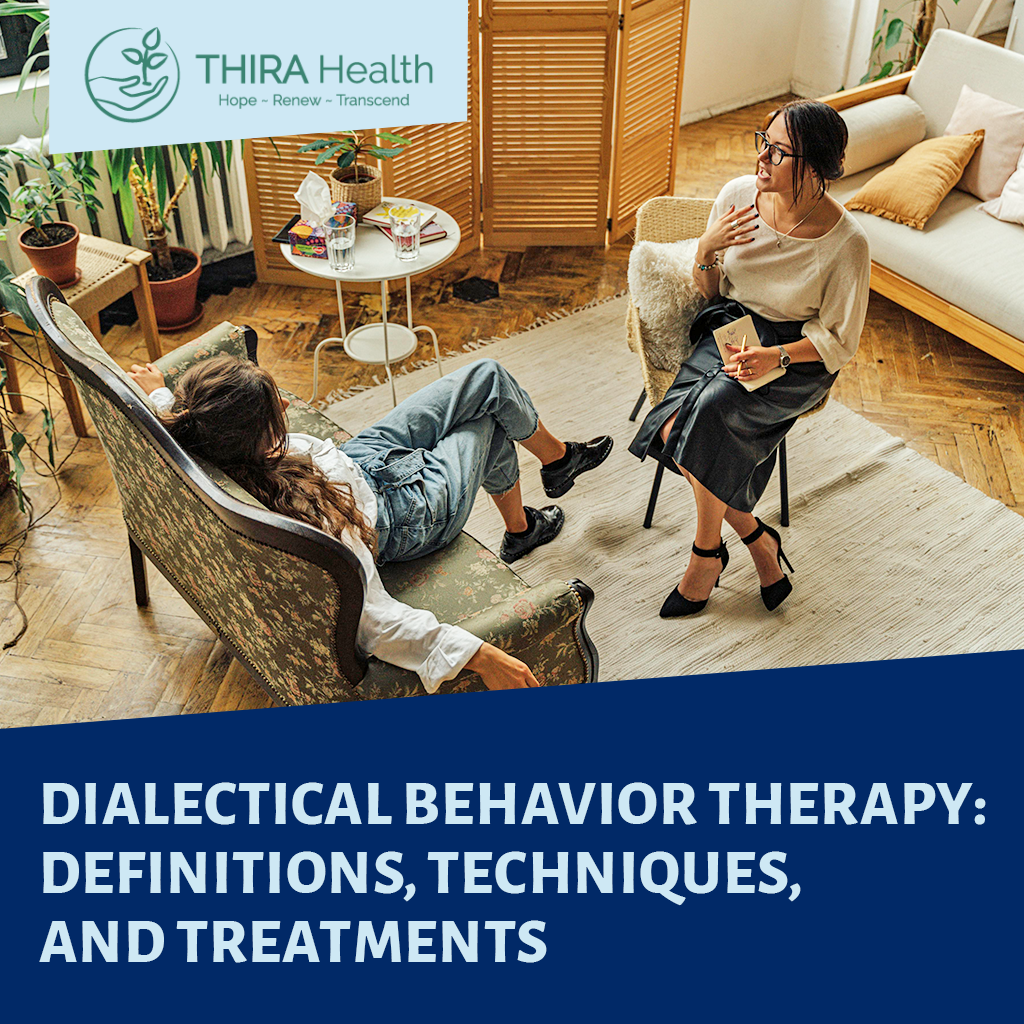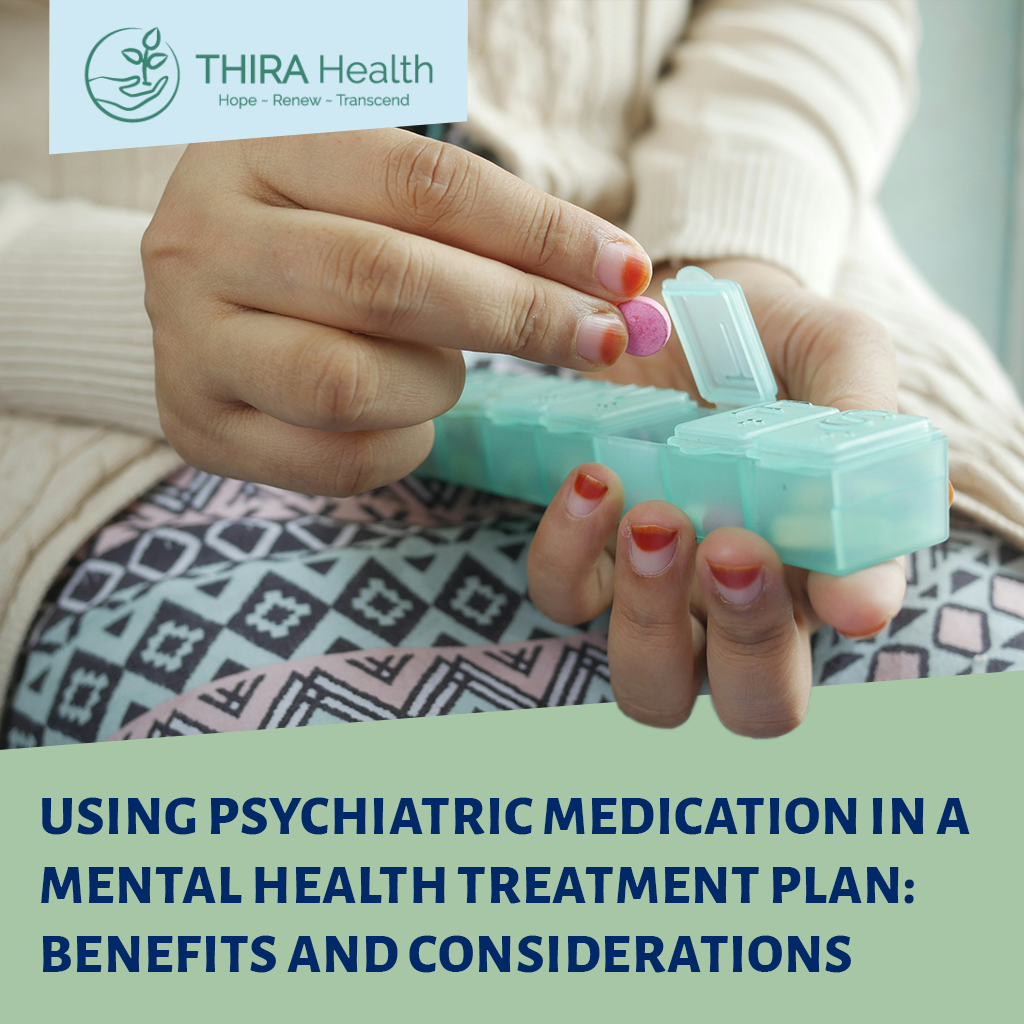Depression can be an overpowering experience, and seeking treatment—whether outpatient or inpatient—can feel overwhelming before you have a strong grasp on what is available. THIRA Health understands that depression treatment can take many forms, and also that participants seeking treatment need dedication and effort from those they trust to help them. We offer a series of intensive depression treatment options that can be considered a continuum of care, to support you as you work to free yourself from depression.
Let’s take a look at how our treatments for depression can work, from inpatient to outpatient care.
Inpatient treatment for depression
In terms of intensive depression treatment, inpatient care is the highest commitment. It can be a crucial starting point for making progress in combating the effects depression has on your life. Inpatient programs, particularly those that include DBT, create a culture of working together for participants, and that community support can be invaluable for recovery from depression.
THIRA Health offers both live-in inpatient programs, and a partial hospitalization program that blends the intensity of inpatient care with the comfort of heading home each day.
Adolescent residential treatment
THIRA offers 24-hour, live-in treatment for 13-17 year olds in Bellevue, WA. Participants spend their time working on DBT skills and personal treatment goals, working with individual therapists and in group therapy. There are also family sessions throughout the week. The family sessions ensure that the DBT skills developed in inpatient treatment can be continued in the home after leaving inpatient care.
Art therapy, mindfulness groups, and group outings that include volunteering and equine-assisted learning add layers of belonging, fun, and outlets for expression to treatment for depression. THIRA offers a holistic, full healing experience that taps into a teen’s strengths and interests, wherever they may lie. Nutritional needs, medical needs, and educational needs will also all be provided for, with experts who are interested in helping participants heal and grow.
The Partial Hospitalization Program
The Partial Hospitalization Program (PHP) at THIRA is unique, in that it offers the substantial daily support of an inpatient program, but allows people to return to their homes at the end of the day. You are supported extensively each day, and know that care is available again the next day no matter what.
Every day of the week, for 7-9 hours a day, participants in the PHP will work with individual therapists and in group therapy on DBT skills and personal treatment goals. This concentrated space for DBT practice gives you a place to focus on the self and how you want to make change, allowing you to move toward living a fulfilling, satisfying life.
On top of substantial DBT engagement, THIRA offers whole person care within the PHP. Treatment includes nutritious meals, art therapy, family education, medication management, and more. This whole person approach gives you ongoing guidance in all facets of life, ensuring treatment makes a difference and your growing abilities serve you in long-lasting recovery.
The Retreat at THIRA
The Retreat is an optional home-away-from-home for participants in THIRA’s partial hospitalization program (more on this program below). The Retreat is tucked away in a forested neighborhood near hiking trails and natural areas, an oasis for those seeking treatment for depression or other mental health conditions. After a full day in the partial hospitalization program, support continues at The Retreat, with THIRA staff available to coach and supervise residents in the evenings.
For participants who want the added benefit of going to a calm, comforting space that allows them to spend time in nature and focus on the self while pursuing outpatient treatment for depression, The Retreat can be an excellent solution.
Transitioning from inpatient to outpatient treatment
In the continuum of care for depression, outpatient care can be a very effective bridge between inpatient care, and living day-to-day life without as much therapeutic support. Knowing you have ongoing support that is consistent and caring can make a huge difference in continuing your healing.
Intensive outpatient programs
Virtual morning and afternoon intensive outpatient care for adult women
For three hours every weekday morning or afternoon, THIRA’s virtual intensive outpatient (IOP) program offers highly structured DBT sessions, mixing individual therapist work with group therapy work. Skill practice to cope with real-world situations is prioritized, so your care can extend into your daily life and sustain your recovery. Additionally, family support is integrated into treatment, so your skills practice and healing process can be supported by those around you, outside of therapy as well as in therapy.
The consistency of commitment with our IOP programs gives you extra support to sustain the success of treatment for your depression, letting you live the life you want.
In-person afternoon intensive outpatient care for teens
Teens need similar support to adults in DBT sessions, with skills practice, group work, and individual therapy, but have additional treatment needs. We add expressive art and therapeutic movement to teen IOPs, to offer whole person care. Teen IOPs also include education for parents and whole family skills building, giving parents strategies to support their teen, and encouraging families to work together to walk the “middle path” together.
Ready to begin treating your depression?
Intensive depression treatment can happen many ways, including transitioning from the all day, every day active support of inpatient care to the regular, less time-intensive support of outpatient care. THIRA Health can help you decide whether inpatient or outpatient treatment is the right starting place for you, and can connect your care from inpatient to outpatient as you transition through care options. Our offerings support all of you, helping you develop the abilities that can make life worth living for you. Get in touch with us today, so we can answer any questions you might have about how our intensive depression treatments can work for you.






